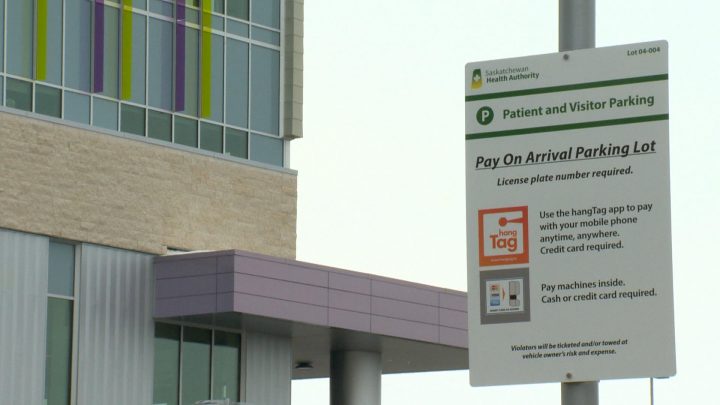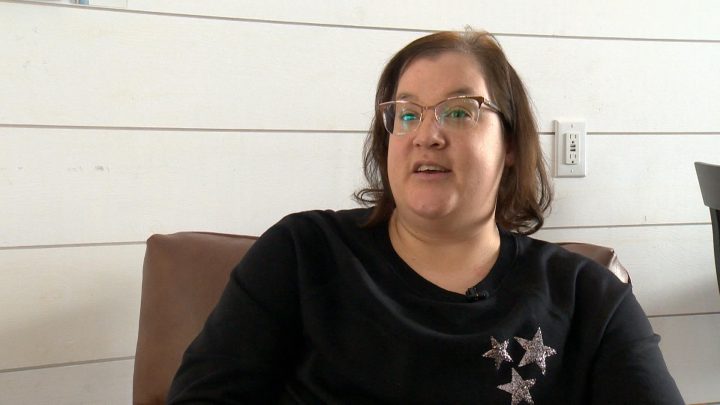Royal University Hospital patients now pay for parking before they enter the building, instead of when they leave — but one cancer patient is more concerned about if she should have to pay at all.

Kristen Fiolleau, 37, was diagnosed with stage-four breast cancer in 2014 and estimates she’s spent about $2,000 on hospital parking since then.
“I shouldn’t even have to worry about that,” Fiolleau told Global News. “I should be more worried about my life and if I’m going to make it through and if I’m going to be OK. And here I am making parking a part of my treatment plan.”
Fiolleau has spent plenty of time at Saskatoon hospitals, taking on 24 chemotherapy treatments and two major surgeries. She spent a month in rehabilitation after brain surgery, re-learning how to read, write and tell time.
“It gets lonely and of course you would want… people to come cheer you up and encourage you throughout your day,” she said. “Parking shouldn’t be your visitors’ burden either.”
Now in remission, the appointments and parking fees keep coming every few months.
Fiolleau said she doesn’t think hospital patients and visitors should foot the bill, and an expert on the social determinants of health agrees.

Get weekly health news
“If you squeeze hospitals hard enough, they’re going to turn around and squeeze their patients and their friends and families,” said Trish Hennessy, executive director of the non-profit Upstream.
“The whole idea of Canadian medicare was supposed to be that if you’re sick, there isn’t a barrier for you to get treatment. Parking represents a barrier for a lot of people.”
In an emailed statement, Saskatchewan Health Authority (SHA) spokesperson Amanda Purcell said patients and visitors cover the cost so hospital funding can be dedicated to health services.
All parking revenue goes to SHA, which contracts Impark to run its parking facilities. SHA did not respond to requests from Global News about how much revenue parking brings in each year, and how much money is spent on maintaining parking infrastructure.
Hennessy said monetizing parking is a symptom of chronic under-funding that decreases equitable access to health care. She’d like to see federal and provincial funding allocated to public parking.
“If you say, ‘This is a priority. We want to be an equitable hospital and our doors open beginning at the parking lot,’ then … you would reallocate your budget,” she said.
Saskatchewan’s health ministry said the SHA is responsible for choosing how its provincial funding is distributed.
Fiolleau said she’d like to see more support for people with stories similar to hers.
“I know that we do have to pay for these resources in order to keep up the parking facilities, but there should be exceptions,” she said.




Comments
Want to discuss? Please read our Commenting Policy first.